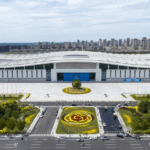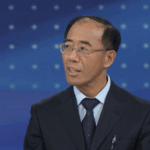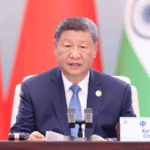As global leaders prepare for the 2025 G20 Summit in South Africa (November 22-23), China is positioning itself as a key advocate for multilateral cooperation amid rising geopolitical tensions. With protectionist policies threatening global supply chains, Chinese officials have intensified calls for inclusive governance reforms and strengthened support for developing nations.
Reforming Global Governance
Foreign Minister Wang Yi recently emphasized China's commitment to a multipolar world order, criticizing economic decoupling efforts as 'self-isolating.' This year's launch of the Global Governance Initiative (GGI) builds on earlier programs like the Global Development Initiative and Global Security Initiative, offering structured proposals to address systemic imbalances in international institutions.
Bridging the Development Gap
Analysts highlight three critical challenges in current global frameworks: underrepresentation of developing nations, unilateral actions eroding multilateral authority, and lagging responses to emerging issues like AI governance. Through its $4 billion Global Development Fund and 130+ projects across 60 countries, China aims to demonstrate practical solutions to these gaps.
Cultural Diplomacy in Action
Beyond economic measures, China's Global Civilization Initiative promotes cross-cultural dialogue, while disaster relief programs under the GSI framework address non-traditional security threats. As Wang Yiwei of Renmin University notes, these efforts seek to transform 'governance without fairness' into collaborative solutions.
With the summit days away, all eyes remain on how China's vision for institutional reform will shape discussions among G20 members navigating an increasingly fractured geopolitical landscape.
Reference(s):
China's push for multilateralism integral as the G20 draws near
cgtn.com







